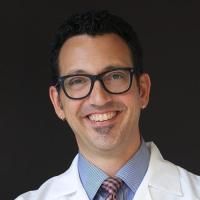Glucose control in hospitalized patients.
Abstract
Evidence indicates that hospitalized patients with hyperglycemia do not benefit from tight blood glucose control. Maintaining a blood glucose level of less than 180 mg per dL (9.99 mmol per L) will minimize symptoms of hyperglycemia and hypoglycemia without adversely affecting patient-oriented health outcomes. In the absence of modifying factors, physicians should continue patients' at-home diabetes mellitus medications and randomly check glucose levels once daily. Sulfonylureas should be withheld to avoid hypoglycemia in patients with limited caloric intake. Patients with cardiovascular conditions may benefit from temporarily stopping treatment with thiazolidinediones to avoid precipitating heart failure. Metformin should be temporarily withheld in patients who have worsening renal function or who will undergo an imaging study that uses contrast. When patients need to be treated with insulin in the short term, using a long-acting basal insulin combined with a short-acting insulin before meals (with the goal of keeping blood glucose less than 180 mg per dL) better approximates normal physiology and uses fewer nursing resources than sliding-scale insulin approaches. Most studies have found that infusion with glucose, insulin, and potassium does not improve mortality in patients with acute myocardial infarction. Patients admitted with acute myocardial infarction should have moderate control of blood glucose using home regimens or basal insulin with correctional doses.
Type
Department
Description
Provenance
Citation
Permalink
Collections
Scholars@Duke

Gregory Eshleman Sawin
My work is a reflection of a core value in social justice and a passion to increase health equity. Most of my academic career has been as an educator, serving as a family medicine residency director for 10 years prior to joining Duke. Having started my career in Massachusetts, where universal coverage started in 2007, I have had a focus in primary care transformation and value based care, with special attention to doing so in residency clinics. I’m eager to use my position as Vice Chair for Education and Faculty Development in the Department of Family Medicine and Community Health to coordinate efforts across its five divisions and growing research group to build “learning systems” that adopt continuous improvement culture in all that we do.
Research interests: health equity, team based care, primary care transformation, leadership and improvement science and group based opioid treatment.
Unless otherwise indicated, scholarly articles published by Duke faculty members are made available here with a CC-BY-NC (Creative Commons Attribution Non-Commercial) license, as enabled by the Duke Open Access Policy. If you wish to use the materials in ways not already permitted under CC-BY-NC, please consult the copyright owner. Other materials are made available here through the author’s grant of a non-exclusive license to make their work openly accessible.
